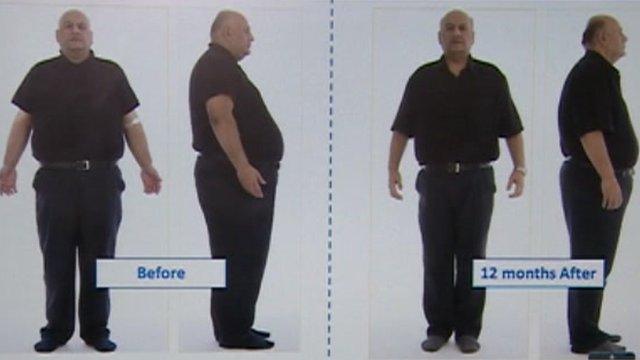Diabetes type 2: Offer gastric surgery regardless of weight, says surgeon
- Published
Professor Rubino says increasing the number of operations would save the NHS money
Thousands of patients with type 2 diabetes are being denied the chance of life-saving surgery because they do not fit strict NHS guidelines on weight.
Around 3.6m people in the UK suffer from type 2 diabetes, which costs the NHS up to £10bn a year to treat.
A leading bariatric surgeon told Inside Out surgery was "the closest thing to a cure" and should be used more often.
Only type 2 patients with a BMI over 30 are currently eligible under obesity guidelines, external.
At least 15% of sufferers are of normal weight and therefore don't qualify for operations like gastric bypasses on the NHS.
Of those who do meet the criteria - less than 1% access surgery.
The Chair of Bariatric and Metabolic Surgery at Kings College, Professor Francesco Rubino, has been researching the effects of bariatric surgery on type 2 diabetes for 15 years.
"I don't think this is seen as a lifesaving operation as it is," he told the BBC.
"The biggest barrier we have is primarily one of stigma against obesity. The vast majority of the public believes this is a cosmetic intervention and unfortunately many physicians think the same way."
'A foreign parameter'
Professor Rubino said operations involving the manipulation of the stomach or intestine do not just help people lose weight - they also alter hormones in the gut, which in turn influences insulin production.
"More than 50% of people with type 2 diabetes can enjoy long term remission. Another 30 or 40% enjoy a major improvement," he added.

How does it work?
How the surgery works
Bariatric surgery refers to a set of operations carried out with the primary intention of helping people who are morbidly obese lose weight.
The two most common types of weight loss surgery are:
Gastric band, where a band is used to reduce the size of the stomach so a smaller amount of food is required to make someone feel full.
Gastric bypass, where the digestive system is re-routed past most of the stomach so less food is digested to make someone feel full.

Professor Rubino said the use of bariatric surgery was currently "shaped around weight loss", with remission from diabetes seen as a by-product.
Instead, he said, it should be offered as a "standard treatment" for type 2 patients, who are not responding to dietary or pharmaceutical intervention, regardless of BMI, external.
He wants to see guidelines from the National Institute for Health Care and Excellence (NICE), external updated to reflect this.
"Diabetes care practitioners don't use BMI to decide whether you go on one medication or another. So why should surgery be regulated by a parameter that is foreign to the management of diabetes?
"In patients who have done everything possible - what is the point of not offering it, just because their BMI does not fit the criteria that we have arbitrarily introduced for the treatment of obesity?"
Professor Rubino said type 2 diabetes was often "dismissed as something that can be easily managed through diet and exercise".
"When diabetes is fully developed it becomes a serious disease and many patients - 50% or more - are not able to control it, no matter how many medications they take," he added.
He said each bariatric operation costs £6,000, making it "one of the most cost effective interventions in medicine at the moment".
'I signed up to Dignitas'
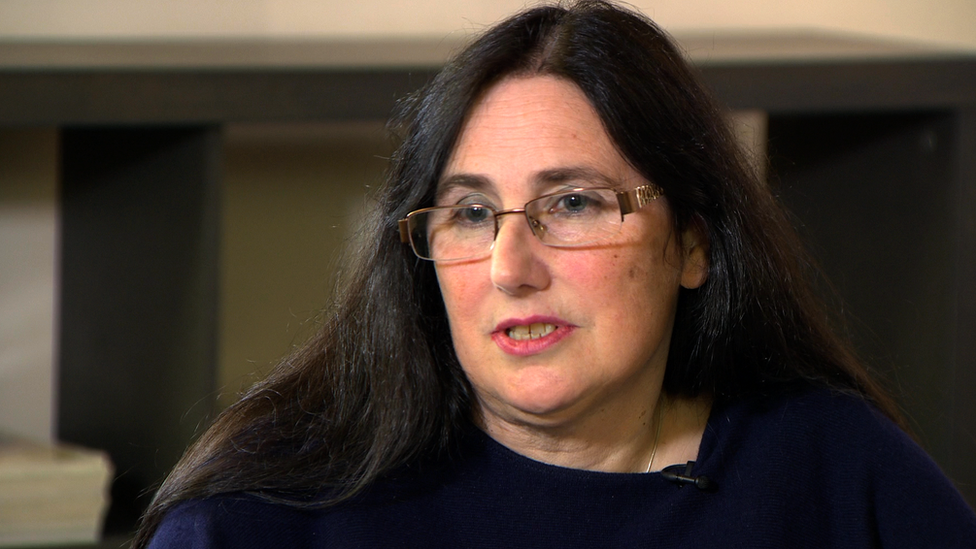
Barbara Gratton from Yorkshire has normal blood sugar levels post surgery
Barbara Gratton, 53, suffered with type 2 Diabetes for nearly 20 years.
It was caused by a genetic disorder called Familial Partial Lipodystrophy, external, which prevents her body from properly storing fat and caused her pancreas to malfunction.
Mrs Gratton's low weight meant she did not quality for bariatric surgery under the current obesity guidelines set by NICE.
"My systems had become resistant to any kind of medication. So I was looking at the co-morbidities - heart failure, stroke, blindness," she said.
Mrs Gratton was so worried about her future she signed up to Dignitas, an assisted suicide organisation.

What is Type 2 diabetes?
Diabetes is a condition that causes a person's blood sugar to become too high.
Type 1 can develop at any age, but often begins in childhood. It is not related to diet or lifestyle.
Type 2 is far more common. It is usually seen in adults and can be associated with obesity. It can lead to serious complications, including kidney failure, blindness and heart disease.
It's the most common cause of vision loss and blindness in people of working age.

After a two year battle with "NHS bureaucracy" she was eventually offered surgery - but at that point she had already signed up for private treatment under Professor Rubino.
She underwent a bypass operation at Kings College Hospital on 5 September and within days she was off the insulin needed to control her blood sugar levels.
"It allows me to have a normal life, even with my underlying condition.
"If you have type 2 diabetes at these lower BMIs - £6,000 will get it done and reduce liver cancer and strokes."
'Not big enough'
Some 6,000 bariatric operations are carried out in the UK every year. Around a quarter, external of these patients have type 2 diabetes.
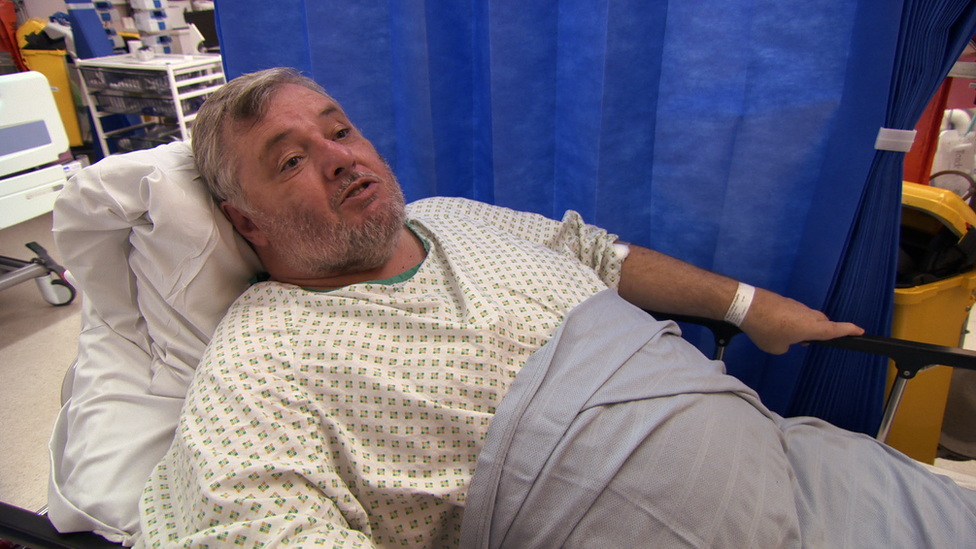
Mr Benge's diabetes was impacting his quality of life and making him depressed
Britain lags behind other European countries, where around 50,000 bariatric operations are carried out every year.
Even those who fall within the weight parameters set by NICE can struggle to gain access on the NHS.
David Benge, 56, from Hastings, recently had gastric bypass at Kings. He was initially told he was not "big enough" despite having a BMI of 36.
"From GP level they were saying it's not enough for us to refer you," he said.
"So there was a bit of pushing... at the time to get me referred, which they did in the end."
Mr Benge's blood sugar levels also dropped dramatically in the days after surgery.
Director of the Centre for Guidelines at NICE, Professor Mark Baker, said there might be scope to extend obesity and diabetes' guidelines in the future.
"There is very little doubt that people with type 2 diabetes - and at any level of weight - can see their glucose control improved by bypass surgery," he added.
"It is an effective treatment and we'd like it to be more widely available. But there are other priorities in diabetes and there is a limited budget."
An NHS England spokesperson said: "Bariatric surgery should only be considered for severe obesity where other approaches have not been successful."
Watch the full programme on Inside Out London, Monday at 19:30 on BBC One or catch up on the iPlayer.
- Published30 July 2016

- Published10 October 2016
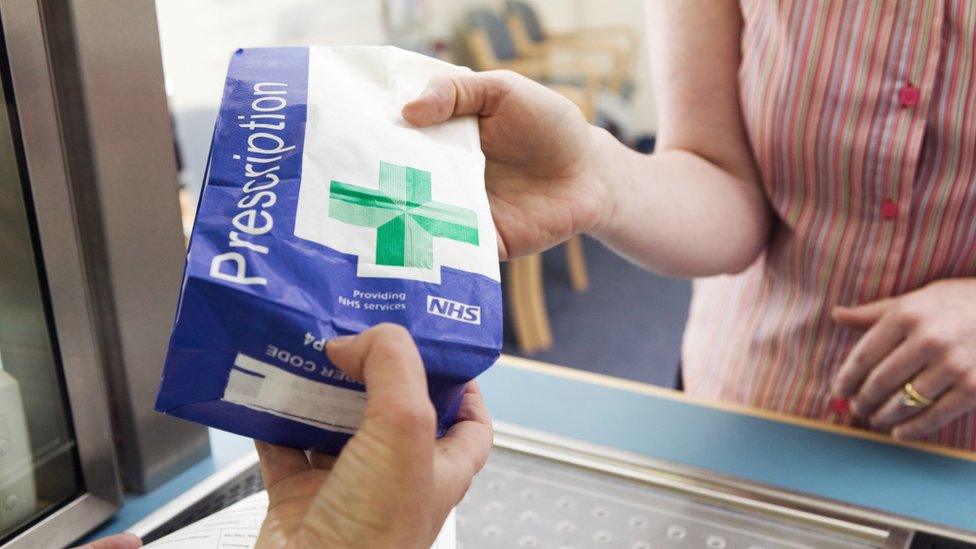
- Published15 June 2016
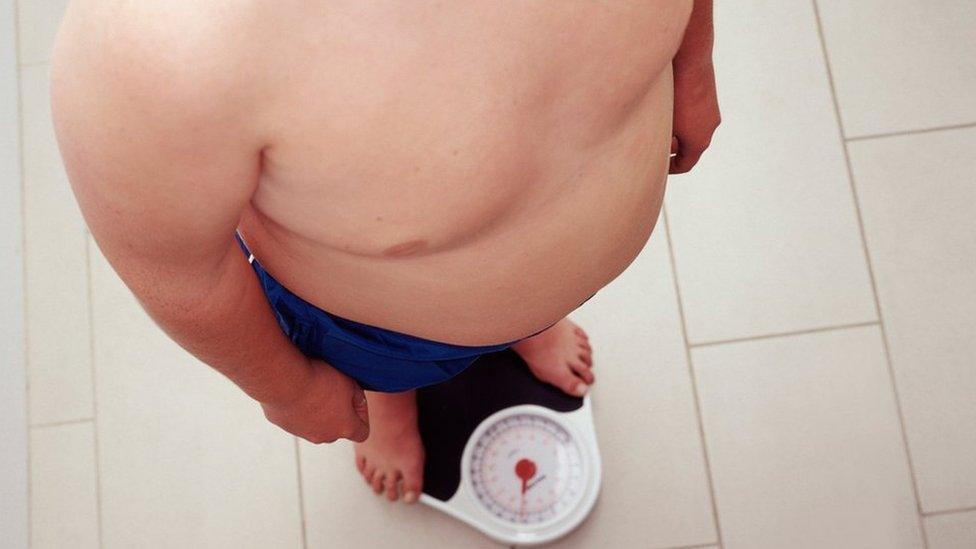
- Published11 May 2016
